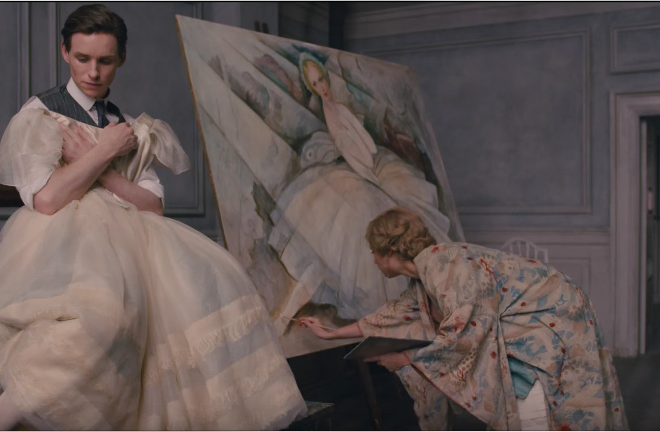
By: Danah Al-Ansari
@DanahAlAnsari
To encourage students to tackle a feminist dialogue, Heya, AUC’s feminist initiative, held a screening of The Danish Girl on February 27.
The 2015 film depicts the journey of Gerda Wegener, a transsexual woman’s life before and after her sex reassignment surgery.
Wegener is a Danish female artist, who asks her husband, Einar Wegener, to stand in as a female model to pose for a painting.
This triggers Einar’s identification as a woman, who eventually names herself Lili Elbe and begins the surgery procedures.
The film brushes on the medicalization of transexuality at a certain point in history.
Heya President Laila Mottaweh screened the film in hopes that it would inspire people to talk about trans issues.
The club focuses on women’s rights and aims to understand the causes of their systematic oppression, and to help women deal with everyday challenges.
“Basically, transwomen are women too. And we must include their experiences when we talk about the different forms of oppression that different women face,” said Mottaweh.
Most of the attendees empathized with the protagonist because of all the hardships and dilemmas she had to overcome in her life.
“[It is] a topic that is incredibly overlooked in our community and [talking about it can] become an active constituent in eradicating transphobia,” she added.
Throughout the movie, Lili is condemned as a pervert and a psychopath for refusing to conform to societal norms.
In the process, she is shunned by Gerda, who cannot come to accept Elbe as the man she first married.
Their marriage is further strained when a love triangle erupts with Lili’s childhood friend, Hans Axgil.
After the screening, the discussion centered on the societal structures and norms that generated much of the pressure on Elbe.
Some in the audience emphasized the need for universal and absolute human rights.
“Human rights [include the right for] everyone to do what they want to do. If they want to change genders, then they should do just that if it is what will make them happy,” said Hanya El Ghamry, a visual arts student.
The discussion also delved into how transgender individuals need support from family and friends but acknowledged that this is difficult to provide due to long-standing societal norms and sensitivities.
The fact that Lili’s wife was supportive in the film is what stood out most to the audience.
“It was shocking to me. I mean, if you saw your husband kissing another guy, what would you do? She’s a high[ly] tolerant wife, she respected what he wanted,” said Omar Ahmed, an electronics engineering student.
“I felt this was a new perspective to me. I cannot understand it. Is it biological or mental? Is it a hormonal imbalance?” asked Youssef, who asked to be referred to by his first name.
According to Mottaweh, this now allows people to reflect on the misconstrued and extremely problematic side of psychiatry and psychology, especially when it comes to questions of gender and culture.
“No one should witness the multi-faceted hardship [Lili] had to deal with in terms of personal torment, interpersonal turbulence, society’s violent backlash, or the medical gaze,” she said.
However, Mottaweh made it very clear that they were not assuming that this was the narrative every trans individual has.
“I say ‘some’ trans folks and not ‘all’, as to not reduce all trans experiences to one narrative. This film concerns a socioeconomically privileged, able-bodied, Danish trans woman,” she said.